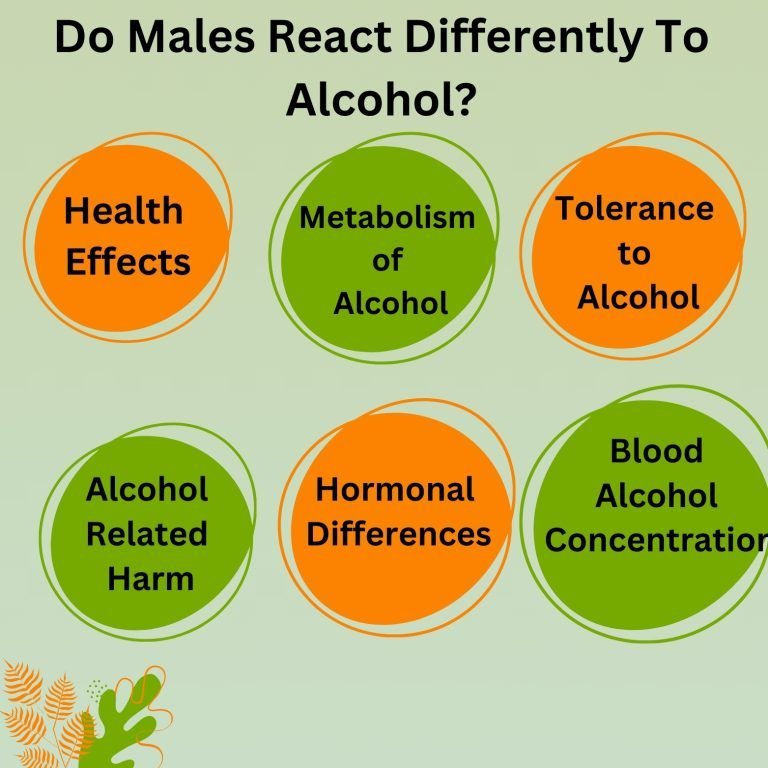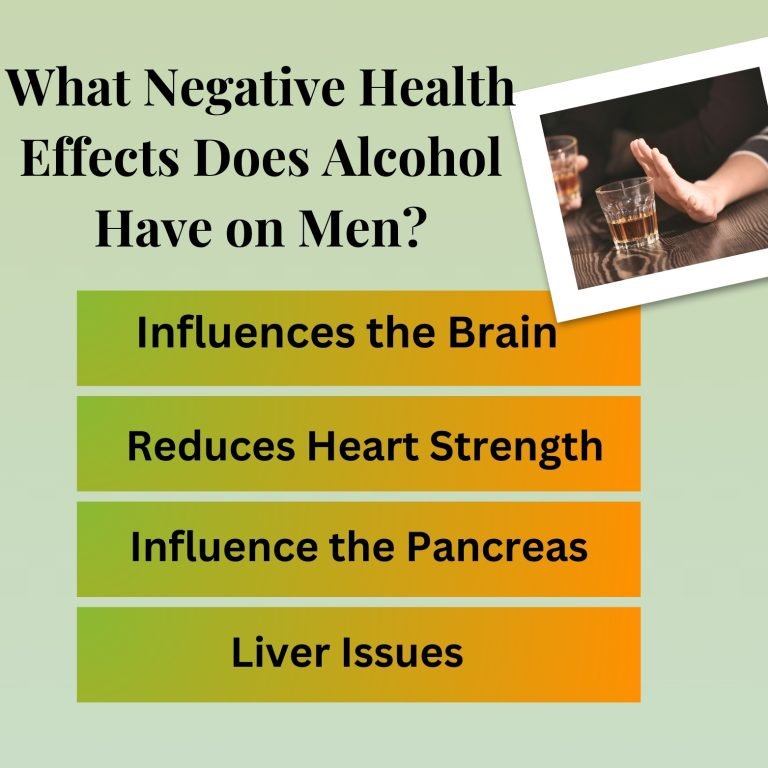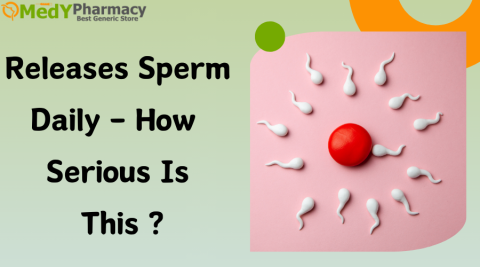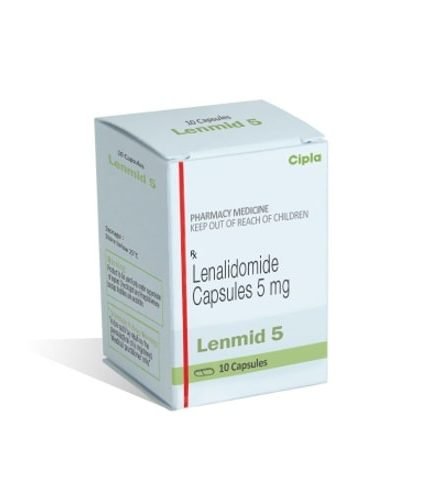Introduction:
Alcoholism is one of the most prevalent addiction illnesses that affect males. Alcohol addictions are difficult to break, and the more you indulge, the worse your health will grow.
Alcoholism is one of the main health problems impacting men today on a global scale. Every year, hundreds of people of all ages are admitted to rehabilitation facilities worldwide.
We’re going to learn about the worst effects of regular alcohol consumption in this post. In addition, we will examine the additional health problems that may arise.
Numerous physical and mental health issues can result from severe alcohol misuse. Making educated judgments regarding your drinking habits requires an awareness of the dangers of excessive alcohol consumption. This is why men’s health might be negatively impacted by excessive alcohol use.
It is important to understand that drinking too much alcohol may be detrimental to one’s physical and mental health, especially for males. This blog will cover topics such as the risks of alcohol abuse as a mental illness, typical drinking guidelines, the advantages of reducing alcohol use, treatment choices, healthy substitutes, and the detrimental effects of alcohol on testosterone and sleep.
Drinking habits, age, and health are some of the variables that determine how it impacts you. Overindulging in alcohol can have negative immediate and long-term consequences. It may have an impact on your community, family, career, money, and physical and mental well-being.
What Is Alcohol?
Among alcoholic drinks, ethanol is the primary psychoactive element. The chemical that causes intoxication is ethanol, which is commonly referred to as “alcohol.”
Yeasts that break down sugar in some carbohydrate-rich foods, such as grapes (used to create wine) or wheat (used to make beer), generate it.
This is among the most widely used psychoactive drugs worldwide. It can have a significant impact on your mental and emotional health.
This can help people act more freely by lowering shyness and self-consciousness. In addition, it can lead to actions that people later regret and impair judgment.
Some individuals prefer to binge drink, while others only consume small quantities at a time. Drinking a lot at once is known as binge drinking.
There are several uses for this chemical compound in industry, medicine, and entertainment. Humans most frequently drink ethanol, sometimes referred to as ethyl alcohol. Because it is psychoactive, it can change mood, behavior, and cognitive performance by influencing the brain.
Yeast ferments the carbohydrates in fruits, cereals, and vegetables to generate ethanol. It is the main component of wine, spirits, beer, and other alcoholic drinks. Because alcohol depresses the central nervous system, it can cause relaxation, poor coordination, and drunkenness at larger doses.
Additionally, in some industrial contexts, it serves as a fuel, solvent, and disinfectant. Human societies have used alcohol for a very long time, frequently as a component of social rituals. However, this is dangerous, especially if used carelessly or excessively.
Alcohol Misuse as a Mental Illness
This is characterized by excessive and sustained alcohol use, even in the face of harmful effects. Note that occasional social drinking is not the same as alcohol abuse. Alcohol dependence is common in people with alcohol consumption disorders, who also experience urges and lose control over their drinking patterns. This illness can cause serious health problems, poor relationships, and difficulties in day-to-day functioning.
When alcohol use is decreased or stopped, withdrawal symptoms including sweating, shivering, nausea, and anxiety may manifest because the body grows accustomed to it.
A person who drinks excessively over time may acquire a tolerance, which means that more alcohol is required to provide the same effects. This may result in a vicious cycle of increasing use and increased danger.
Many people who abuse alcohol often have co-occurring mental health conditions including anxiety or depression. In these situations, the best results are frequently obtained by treating the underlying mental health conditions in addition to the alcohol use problem.
This is frequently stigmatized, which might discourage people from getting treatment. This is a real medical problem, though, and with the correct care and support, recovery is achievable.
In summary, this is a complicated problem that necessitates comprehension and treatment like a mental disorder. For successful treatment and rehabilitation, it is essential to identify it as a mental health condition.
The Worst Way Alcohol Can Affect You
Drinking alcohol can lead to several different health problems. But according to research, what is the most significant health concern?
If you are hooked to it, your mental health is the main issue.
- Chronic Health Problems
Liver disease is mostly caused by prolonged heavy drinking. Cirrhosis, fatty liver disease, and alcoholic hepatitis are among the conditions that can develop and cause liver failure and even death.
Drinking too much increases the chance of cardiac issues such as hypertension, heart attacks, strokes, and cardiomyopathy, which is a weakening of the heart muscle.
Abuse of alcohol is associated with a higher risk of cancer, including malignancies of the mouth, throat, esophagus, liver, breast, and colon. Drinking even a little alcohol raises the danger.
Pancreatic inflammation brought on by long-term alcohol consumption might impair digestion and produce excruciating stomach discomfort.
- Mental Health Disorders
This may exacerbate pre-existing mental health issues including anxiety and despair. Although it may provide temporary respite, it eventually intensifies depressive, anxious, and hopeless sentiments.
Chronic alcohol misuse can affect one’s memory, problem-solving skills, and cognitive function. It can sometimes result in serious neurological disorders like Wernicke-Korsakoff syndrome or alcohol-induced dementia.
This depressant has the potential to reduce inhibitions and impair judgment. Many people who struggle with alcoholism and mental health disorders may be more susceptible to suicidal thoughts and actions.
- Addiction and Dependence
Chronic alcohol abuse can cause psychological and physical dependence, making it extremely difficult to quit drinking despite the harmful effects. A cycle of abuse can be perpetuated by this reliance, which can exacerbate social and health issues.
Those who are physiologically dependent on alcohol may have severe withdrawal symptoms, such as seizures, delirium tremens (DTs), hallucinations, and in severe cases, death, if they cease abruptly.
- Accidents and Injuries
Reaction times, judgment, and motor abilities are all severely hampered by alcohol. This makes falls, auto accidents, and other injuries more likely. Alcohol-related driving is a leading cause of road deaths.
As a result, violent behaviors may increase and inhibitions may be lowered. Physical altercations, domestic abuse, and other types of injury to oneself or others may result from this.
Social and Relationship Problems
Relationships with friends, family, and romantic partners can all suffer greatly from alcohol abuse. Arguments, betrayal of trust, emotional distress, and even domestic violence can result from alcohol’s consequences.
People who misuse alcohol regularly may become socially isolated as they put drinking before interacting with others or taking care of their obligations. Feelings of loneliness, alienation, and isolation may result from this.
Misuse of alcohol can result in legal issues including DUIs, allegations of violence, or property damage. These problems can have serious repercussions for an individual’s life, including job loss, financial difficulties, and even incarceration.
- Financial Ruin
Large-scale alcohol use over time might cause serious financial hardship. The price of buying alcohol, medical bills, and legal fees may mount up rapidly.
Alcohol abuse can hurt one’s capacity to function at work, which can result in subpar work output, absenteeism, termination, and trouble obtaining replacement employment.
- Lifespan Reduction
A considerably shortened lifetime might result from the accumulation of all the physical and mental health hazards linked to alcohol abuse. Chronic alcohol use has a significant influence on heart and liver health as well as the likelihood of accidents, which contributes to avoidable deaths globally.
- Impact on Loved Ones
In addition to the drinker, alcohol abuse can have a significant effect on family members and loved ones. Children of alcoholics are susceptible to emotional and behavioral problems, and because a loved one’s behavior is unpredictable, families frequently endure stress, trauma, and strained relationships.
The worst effects of alcohol include both immediate and long-term health problems, such as liver disease, cancer, mental health disorders, accidents, broken relationships, and financial devastation. In addition to causing great misery for the sufferer and their loved ones, this abuse can drastically reduce lifespan and quality of life.
How Did Alcohol Affect Your Mental Well-Being?
Divergent views may exist about alcohol’s impact on mental health. It is used by some of you to relieve tension and anxiety. However, the outcome differs greatly from your initial assumptions.
Medical research indicates that although it might improve your mood, it does more harm to your mental health over time. When you drink, you experience tension, which might worsen over time if you don’t break the habit.
According to certain evidence gathered from this research, stress or worry can even lead to an individual developing an addiction and becoming increasingly reliant on it.
Intervention for Alcohol Misuse
Recovery depends on identifying alcohol misuse symptoms and getting help. Alcohol misuse treatment methods vary based on the requirements of the individual, but they frequently combine therapy, support groups, and medical intervention.
To control withdrawal symptoms and avoid relapse, medical experts and addiction specialists can offer advice and prescribe the right drugs. Sessions of treatment, such as cognitive-behavioral therapy, can assist people in addressing the root causes of their alcohol misuse and creating coping strategies.
The Immediate Consequences of Alcohol Use
The following are some short-term consequences of alcohol consumption:
- Sensations of slumber or relaxation
- A feeling of elation or giddy excitement
- Shifts in mood
- Reduced inhibitions
- Impulsive conduct
- Speaking slowly or slurring
- Feeling queasy and throwing up
- Diarrheal
- Headaches
- Hearing, vision, and perception modifications
- Inability to coordinate
- Difficulties concentrating or making choices
- Unconsciousness or lapses in memory (often referred to as a “blackout”)
Some of these effects, such as decreased inhibitions or a relaxed mood, may appear rapidly after a single drink. Others, such as slurred speech or unconsciousness, could appear after a few glasses.
Effects of dehydration, such as headache, nausea, and lightheadedness, may not show up for several hours and may also be influenced by the type of drink, amount, and presence of water consumption.
Even while these impacts may not be permanent, they are nonetheless important. Impulsivity, poor motor skills, and mood swings might influence your behavior and judgment and lead to more serious consequences, such as mishaps, injuries, and regrettable choices.
Effects of Alcohol over Time
Additionally, alcohol consumption might result in longer-term issues that go beyond your well-being and happiness.
Among the long-term consequences of regular alcohol consumption are:
- Continuous mood swings, such as anger and anxiety
- Your immune system is compromised by insomnia and other sleep issues, which increases your risk of being ill more frequently.
- Libido and sexual function changes
- Issues with memory and attention, changes in appetite and weight, and trouble concentrating on activities
- Increasing hostility and strife in familial and personal partnerships
Alcohol’s Effects on Mental Health
Here is a list of health problems that might result from consuming large amounts of alcohol:
- Stress
- Anxiety
- Depression
These mental health issues can also seriously affect your sexual life. Researchers think that a long-standing practice of drinking alcohol can also cause problems with men’s penile erections. Men all over the world suffer from ED due to alcohol consumption, which is why they must rely on fildena pills to become hard.
Do Males React Differently To Alcohol?
Men do experience some effects of alcohol differently than women do. These occur due to the anatomical and physiological variances between biological males and females, as well as variations in the normal drinking habits of the two sexes.
According to research, riskier drinking habits and an increased chance of developing alcohol dependency are associated with higher body testosterone levels.
The effects of alcohol on men’s health are profound, regardless of the causes. Compared to women, twice as many males pass away from an alcohol-related illness.

- Health Effects
Both men and women are susceptible to liver disease from excessive drinking, although males are more likely than women to acquire alcohol-related liver illnesses like cirrhosis, especially if they drink extensively for an extended length of time. With reduced alcohol intake, women could be more susceptible to liver injury, perhaps as a result of variations in body fat and enzyme activity.
Male chronic excessive drinking is associated with an increased risk of stroke, high blood pressure, and heart disease. Drinking too much can greatly raise the risk of cardiovascular diseases in both sexes, even if moderate alcohol use may have some cardiovascular advantages.
When it comes to alcohol-related mental health conditions like anxiety or depression, males may be less likely than women to seek treatment. They also drink more frequently as a kind of self-medication, which over time can exacerbate mental health issues.
- Metabolism of Alcohol
In general, men tend to have less body fat and higher muscular mass than women. Because muscle tissue has a higher water content, alcohol is more efficiently diluted. Because alcohol is digested more effectively and diluted in the body, its effects on males are often less noticeable.
The liver enzyme alcohol dehydrogenase (ADH), which breaks down alcohol, is often more abundant in men. Men may thus digest and get rid of alcohol more quickly than women since they metabolize it more quickly.
- Tolerance to Alcohol
Males frequently acquire a greater tolerance to alcohol than females because of the variations in their body composition and metabolism. They might be able to consume more alcohol without experiencing the same degree of drunkenness as women, according to this. They are still susceptible to the harmful effects of alcohol, though, and excessive drinking still carries significant hazards despite their improved tolerance.
Men may be more tolerant, but this may also contribute to an increased incidence of alcohol abuse or alcohol use disorder (AUD). Their likelihood of developing long-term health issues may increase if they drink more often or in greater amounts.
- Alcohol-Related Harm
Men are more likely than women to participate in hazardous activities, drive while intoxicated, or act aggressively while they are drinking, according to research. These actions may raise the risk of mishaps, injuries, and violence during alcohol use.
Males who use alcohol are more prone to act aggressively or violently, especially when they are drinking heavily. Men may be more likely to act out violently in specific situations, and alcohol’s disinhibiting effects are one factor contributing to this.
- Hormonal Differences
A man’s relationship with alcohol may be influenced by his greater testosterone levels. In addition to influencing mood and aggressiveness, testosterone may also be a factor in the risk-taking behaviors linked to alcohol abuse.
Overindulgence in alcohol can lower testosterone levels in males, which over time can cause symptoms including diminished muscle mass, infertility, and decreased libido.
- Blood Alcohol Concentration
Males often have a lower blood alcohol content (BAC) after ingesting the same quantity of alcohol as females due to their bigger size and greater muscle mass. This implies that even while men may feel less intoxicated, their bodies nevertheless suffer from the same physical deficits, such as poor judgment and slower response times.
It’s crucial to remember that BAC is still affected by several other variables, including weight, drinking pace, and whether or not alcohol is eaten with meals.
Male Breasts and Beer Bellies
Weight gain around the midsection, frequently referred to as a “beer belly,” is more common among men. Calories, not beer specifically, are the source of this weight gain, despite the name. And pure fat has nearly as many calories as booze. Since alcohol contains “empty calories,” which are calories with little nutritional value, ingesting more calories via drinking causes weight gain.
Since fat is immediately deposited in the organs of the belly, including the liver, it is thought to be particularly dangerous in the middle of the body. This kind of “central obesity” raises the chance of several malignancies, such as kidney, prostate, and bowel cancers, as well as heart disease, diabetes, and stroke.
Health of the Sexual and Reproductive Systems
- Since alcohol lowers inhibitions, you might think it will increase your sexual pleasure.
- Stop the synthesis of sex hormones
- Reduce your libido
- Hinder your ability to achieve or sustain an erection
- Make it challenging to have an orgasm
Drinking too much might raise your chances of infertility and have an impact on your menstrual cycle.
Acute alcohol intake may result in transient erectile dysfunction (ED). As a central nervous system depressant, alcohol can disrupt the impulses sent to the brain that aid in erection initiation. Long-term issues may not arise from occasional drinking, but chronic alcohol misuse is more likely to eventually result in permanent eating disorders.
Alcohol addiction can harm the blood vessels and nerves that regulate erection, making it more difficult for men to have sex.
Testicular atrophy, in which the testicles diminish in size, can result from long-term alcohol abuse. This is because alcohol has harmful effects on the cells that make testosterone and sperm.
Alcohol can further exacerbate sexual and reproductive issues by affecting the Leyden cells’ ability to make testosterone.
Both men’s and women’s sexual and reproductive health are significantly impacted by alcohol abuse. Alcohol use in males can result in decreased testosterone levels, erectile dysfunction, and decreased fertility.
Alcohol can affect a woman’s fertility, interfere with her menstrual cycle, and raise her risk of breast cancer and pregnancy difficulties. Alcohol also alters sexual desire and can result in unsafe sexual conduct, which can have immediate as well as long-term effects.
What Negative Health Effects Does Alcohol Have on Men?
According to research, males are more prone than women to drink alcohol. Alcohol use can also make men’s pre-existing health conditions worse. Next, let’s talk about the negative health effects of alcohol use in guys.

- Influences the Brain
Alcohol use can lead to short-term problems including memory loss and impaired coordination. Heavy drinking over an extended period can affect the structure and function of the brain. It may cause harm to the cerebral cortex, limbic system, and cerebellum, among other parts of the brain, which can significantly impact motor abilities. Additionally, alcohol disrupts the brain’s ability to regulate speech, memory, and equilibrium, which makes it harder for the brain to work correctly.
- Reduces Heart Strength
Because the heart is a sensitive organ, it is especially vulnerable to the negative effects of alcohol. By interfering with the flow of oxygen and crucial nutrients to other vital organs in your body, prolonged alcohol use can damage your heart. Triglyceride levels may also rise as a result, increasing the chance of acquiring major illnesses including diabetes and heart disease.
- Influence the Pancreas
The pancreas, which is essential for digestion and blood sugar management, can be impacted by regular alcohol use. Pancreatitis may result from the inflammation it generates in the pancreatic blood vessels. The chance of pancreatic cancer, a deadly and rapidly spreading kind of cancer, is also significantly increased.
- Liver Issues
Alcohol consumption also increases the chance of serious liver issues. Alcohol is processed by the liver and then released from the bloodstream. On the other hand, excessive alcohol use may result in fatty liver, a disorder where waste fat accumulates in the liver, which over time may cause obesity, type 2 diabetes, and liver problems.
Emergency Alcohol Poisoning
The considerably more dangerous consequence of heavy drinking is alcohol poisoning. This is an emergency that might be fatal. If you see these symptoms in someone who has had alcohol, call 000 for immediate assistance:
- Bewilderment, vomiting, and seizures
- Uneven or sluggish breathing
- Pale or blue-tinged complexion
- Low body temperature, difficulties sustaining consciousness, fainting, and inability to wake up.
A person is at risk of dying if they are unconscious or cannot be roused. Even if you don’t see the symptoms, you should get medical help right away if you think someone has alcohol poisoning.
How Does Binge Drinking Affect Your Body, And What Is It?
Binge drinking is generally defined as consuming large amounts of alcohol in a brief period to become very inebriated (drunk) right away.
A headache, alcohol poisoning, or any of the other short-term consequences of alcohol use, such as the previously mentioned accidents and violence, might be the immediate outcome of binge drinking.
Over time, binge drinking can lead to any of the long-term consequences of alcohol use, including diabetes, liver cirrhosis, cancer, and heart disease.
How to Prevent or Lessen the Negative Effects of Alcohol on Your Health
The strongest defense against alcohol’s effects on your health is abstinence. This is particularly crucial if you are attempting to conceive or are already pregnant or nursing, as there is no known safe limit for alcohol consumption.
Low-level drinking is healthier for your body than binge or excessive drinking, if you decide to use alcohol.
The National Health and Medical Research Council of Australia’s national guidelines to decrease alcohol-related health hazards state that the more alcohol you consume, the higher your lifetime risk of alcohol-related damage. To maintain good health, they recommend:
- Reducing the lifetime risk of alcohol-related disease or damage can be achieved by consuming no more than 10 standard drinks per week.
- Limiting oneself to four standard drinks in a single day lowers the chance of suffering an accident from alcohol.
- You are less likely to suffer from alcohol-related problems if you opt to drink less. For some, the safest course of action is to abstain from all alcohol.
It’s critical to keep an eye on your alcohol intake in addition to maintaining a nutritious diet. Drinking alcohol can lead to weight gain and obesity, depending on the amount and kind of alcohol drunk, as well as personal characteristics and several other interpersonal variables.
Sexual Problems Such as ED
Alcohol use might negatively impact your sexual life. Researchers have shown that the number of males who suffer from sex problems and alcoholism is rapidly increasing.
The following is a list of sex problems that drinking can cause:
- You should get Cenforce 120 for erectile problems like ED.
- Minimal libido or sex desire
- Earlier ejaculation
- Problems with the prostate
The majority of these sex problems, according to scientists, are caused mostly by tension and worry that accumulate over time as a result of alcohol consumption. Furthermore, it also reduces blood supply to the penis, which is the second primary cause.
The Advantages of Avoiding Alcohol
Choosing to completely avoid alcohol has several benefits for males. Above all, it removes the chance of illnesses including liver disease, heart difficulties, and some forms of cancer that are linked to alcohol consumption.
Additionally, avoiding alcohol can boost productivity, improve sleep quality, improve mental health, improve physical performance, and free up more time to concentrate on building positive connections.
Long-term alcohol use can lead to heart disease, elevate the risk of stroke, and raise blood pressure. Abstaining can lower the risk of these illnesses and help maintain a healthy heart.
Because alcohol is a depressant, excessive drinking can exacerbate depressive and anxious symptoms. Avoiding alcohol will probably make you feel steadier, less nervous, and more capable of controlling your emotions.
Relationship stress might result from the emotional numbness or unpredictable conduct that alcohol frequently causes. You can converse with others more efficiently and preserve stronger emotional ties if you abstain from alcohol.
How Does The Body Process Alcohol?
This is swiftly absorbed in the stomach and small intestines after consumption. It then moves into your circulation and makes its way to your liver.
Enzymes are released by your liver to break down alcohol. But because the organ can only digest a small amount at a time, surplus is allowed to circulate throughout your body. Thus, the amount of alcohol you drink in a certain period provides you with an indication of its intensity.
Therefore, as you can see, mental health conditions like stress and depression are among the worst ways to be affected by alcohol. However, several of your body’s major organs may be affected by other serious health conditions that can potentially negatively impact your life.
This may increase the likelihood of mental health problems, cause daytime weariness, and decrease cognitive performance. Alcohol misuse can also result in reduced testosterone levels, which can cause mood swings, infertility, muscle loss, and decreased libido. At-home semen collection is offered by Medypharmacy.
























